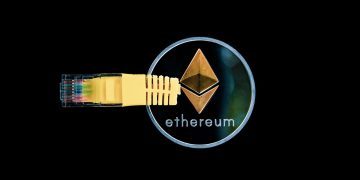As digital surveillance and data tracking become increasingly prevalent, privacy-focused cryptocurrencies have gained significant attention from users seeking confidential financial transactions. These specialized altcoins employ various technologies to ensure transaction privacy while maintaining the security and decentralization benefits of blockchain technology. This comprehensive analysis explores the leading privacy-focused cryptocurrency projects and their unique approaches to achieving anonymous transactions.
The Growing Importance of Financial Privacy
In an era of increasing digital surveillance and data monetization, the demand for privacy-preserving financial tools has grown substantially. Traditional cryptocurrencies like Bitcoin and Ethereum, while pseudonymous, maintain public blockchains where transaction details are visible to anyone. This transparency has created a need for specialized privacy solutions that protect users’ financial privacy while enabling legitimate transactions.
The evolution of privacy technologies in cryptocurrency has led to sophisticated solutions that balance anonymity with regulatory considerations. These advancements have attracted users from various backgrounds, including privacy advocates, businesses requiring confidential transactions, and individuals seeking protection from financial surveillance.
Monero (XMR): The Privacy Pioneer
Monero stands as the most established privacy cryptocurrency, utilizing ring signatures, stealth addresses, and RingCT technology to ensure transaction confidentiality. The project’s commitment to privacy by default, rather than as an optional feature, has made it a benchmark for anonymous transactions in the cryptocurrency space.
Recent protocol improvements have enhanced Monero’s efficiency and privacy features while maintaining reasonable transaction fees. The implementation of Bulletproofs and other optimization techniques has reduced transaction sizes and improved scalability without compromising security. The project’s active development community continues to research and implement cutting-edge privacy technologies.
Monero’s proven track record and continuous innovation have established it as the go-to privacy solution for users requiring complete transaction anonymity. The project’s focus on ASIC resistance and regular protocol upgrades helps maintain its decentralization and privacy guarantees.
Zcash (ZEC): Zero-Knowledge Innovation
Zcash pioneered the use of zk-SNARKs (Zero-Knowledge Succinct Non-Interactive Argument of Knowledge) in cryptocurrency, offering users the option of transparent or shielded transactions. This flexibility allows for both regulatory compliance and complete privacy when needed, making it attractive to institutional users and privacy-conscious individuals alike.
The recent network upgrades have improved the efficiency of shielded transactions and reduced their computational requirements. These improvements have made private transactions more accessible and cost-effective, encouraging greater adoption of Zcash’s privacy features. The project’s scientific approach to privacy technology continues to advance the field of zero-knowledge cryptography.
Zcash’s implementation of optional privacy features provides users with choice while maintaining compatibility with regulated entities. The project’s focus on research and development ensures continuous improvement in privacy technology and scalability.
Secret Network (SCRT): Privacy-Preserving Smart Contracts
Secret Network has emerged as a unique player in the privacy space by enabling confidential smart contracts. This capability allows for private decentralized applications (dApps) and programmable privacy, extending beyond simple transaction anonymity to enable complex private computational systems.
The platform’s ability to process encrypted data while maintaining confidentiality has opened new possibilities for privacy-preserving applications. From private DeFi protocols to confidential NFTs, Secret Network’s technology enables a new generation of privacy-focused blockchain applications. The project’s focus on interoperability allows it to bridge privacy features to other blockchain networks.
Recent developments in the Secret Network ecosystem have expanded its capabilities and use cases, attracting developers and users seeking programmable privacy solutions. The platform’s unique approach to privacy has created opportunities for innovative applications while maintaining strong security guarantees.
Beam (BEAM): MimbleWimble Privacy
Beam implements the MimbleWimble protocol to provide strong privacy guarantees while maintaining scalability. The project’s focus on user experience and optional transparency makes it accessible to both privacy-focused users and those requiring regulatory compliance.
Recent protocol improvements have enhanced Beam’s privacy features and transaction efficiency. The implementation of confidential assets and smart contracts has expanded the platform’s capabilities beyond simple private transactions. The project’s commitment to regular updates and feature additions has maintained its competitive position in the privacy cryptocurrency space.
Privacy Technology Innovations
The privacy cryptocurrency sector continues to evolve with new technological innovations. Recent developments in zero-knowledge proofs, ring signatures, and confidential transaction protocols have improved the efficiency and effectiveness of privacy features. These advances have made private transactions more accessible and practical for everyday use.
Research into quantum-resistant privacy techniques ensures these projects remain secure against future technological threats. The development of cross-chain privacy solutions and interoperable protocols is expanding the reach and utility of privacy-focused cryptocurrencies.
Frequently Asked Questions
Q: Are privacy coins completely anonymous? A: While privacy coins provide strong anonymity features, the level of privacy can vary depending on the specific technology used and how it is implemented. Users should understand the privacy guarantees and limitations of each project.
Q: How do privacy coins handle regulatory compliance? A: Different projects take various approaches, from optional privacy features that allow for selective transparency to complete privacy by default. Users should consider their regulatory requirements when choosing a privacy solution.
Q: What are the key differences between privacy coin technologies? A: Privacy coins use different approaches such as ring signatures (Monero), zk-SNARKs (Zcash), and MimbleWimble (Beam). Each technology offers distinct advantages and trade-offs in terms of privacy, scalability, and usability.
Q: Are privacy coins more expensive to use than regular cryptocurrencies? A: Transaction fees vary by project and can be higher due to the additional computational requirements of privacy features. However, recent technological improvements have made private transactions more cost-effective.
Q: How secure are privacy coins against blockchain analysis? A: While privacy coins provide strong protections against blockchain analysis, the level of security depends on the specific technology used and proper implementation of privacy features. Users should follow best practices for maintaining anonymity.
The privacy cryptocurrency sector continues to evolve and innovate, providing users with increasingly sophisticated tools for protecting their financial privacy. As surveillance concerns grow and privacy technology advances, these projects play a crucial role in preserving financial freedom and confidentiality in the digital age. Users should carefully evaluate their privacy needs and understand the features and limitations of different privacy solutions when choosing a platform for anonymous transactions.













































